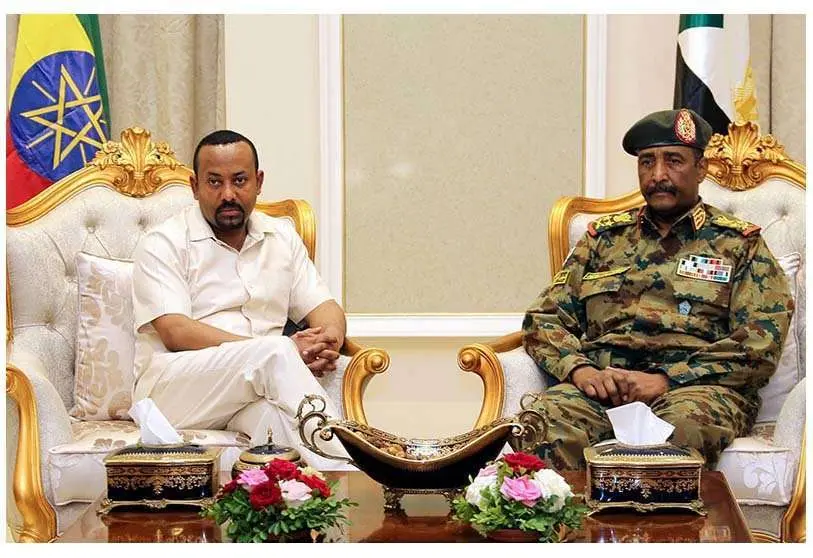Ethiopia-Sudan border tension escalates

The Sudanese and Ethiopian armies on Saturday reportedly engaged in a new armed dispute in al-Fashaga, the border region that blew up bridges between Khartoum and Addis Ababa earlier this year. Sudanese military sources leaked to the Qatari media Al Sharq new clashes in the area, reportedly resulting in fatalities. These events add further pressure to the delicate political situation in both countries, which are in a period of deep instability.
Sudan and Ethiopia have been competing for more than a century for a 260-kilometre strip of land, characterised by wide plains and fertile soil. These features make it not only an ideal area for cultivation, but also one of the most important agricultural areas in Sudan. Al-Fashaga is one of the five districts that make up Gadarif State, under Sudanese sovereignty according to colonial-era maps. The problem is that it is inhabited and worked by Ethiopian farmers under an amicable agreement reached a decade ago.
In 2007, then Ethiopian Prime Minister Meles Zenawi and former Sudanese President Omar al-Bashir sealed a cooperation formula allowing for joint cultivation and postponed the demarcation of a new boundary. However, in December 2020, Sudan suddenly evicted the Ethiopian population living in the region, most of whom are ethnic Amhara, the second largest ethnic group in the country. This action provoked a reaction from Abiy Ahmed's government.

Taking advantage of Addis Ababa's weak situation, fighting the separatist challenge in the Tigray region against TPLF rebels, Khartoum acted on the grounds of violating its sovereignty. Sudan accused Ethiopia of using militias, known as 'shefta', under the cover of army troops to force hundreds of Ethiopians into the region to farm the land without the consent of the Sudanese community living in al-Fashaga.
Khartoum also denounced Ethiopia's continued construction of settlements inside the Sudanese border. In other words, the government in Addis Ababa is developing a plan to occupy the territory of its northern neighbour, favouring the interests of Amhara settlers. This would make the conflict more problematic and, above all, make it more difficult to resolve peacefully.
In response to the expulsion of the Ethiopian farmers, the Abiy Ahmed-led government deployed a contingent of military and militia forces along the border. And so began a series of border battles for control of the territory that lasted until February and threatens to resume a year later. If they did, both would exacerbate their internal crisis and attract the intervention of regional partners, thus magnifying the dispute in the Horn of Africa.
"Ethiopian forces have not completely left the area", Sudanese military sources told Al Sharq, a presence that irritates Khartoum, since Sudan defends the border demarcations established in 1902 under the terms of the Anglo-Ethiopian Treaty. An ambiguous document that defined the territorial division with little precision. For this reason, Ethiopia is committed to redefining the division. A face-to-face confrontation in which Abiy and al-Burhan have assumed the negotiating roles, but where no piece is moving.

In this sense, the Sudanese army's high command would have an external enemy to reinforce its internal perception, damaged by its blatant obstruction of democratic openness. Lieutenant General al-Burhan staged a coup d'état on 25 October and imprisoned Prime Minister Abdalla Hamdok. A move that sparked protests against the army and mortally wounded the fragile political transition shared by military and civilians.
But it is Abiy Ahmed, the 2019 Nobel Peace Prize laureate, who has the most to lose on paper. The Ethiopian leader is on the battlefield conducting military exercises with the federal army, setting an example to the civilian population he called on to take up arms to defend territorial unity. The advance of TPLF rebel troops towards the capital could degenerate into a nationwide civil war. And the reopening of a new front - close to the Tigray region - could break the camel's back.








